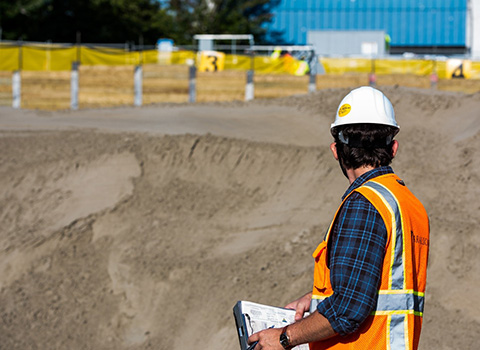Understanding Phase I Environmental Site Assessment
A Phase 1 Environmental Site Assessment (ESA) is a crucial part of real estate due diligence. Whether you are buying, leasing, or financing a property, this assessment helps determine if there are any environmental concerns that could affect its value or usability. By identifying recognized environmental conditions (RECs) early on, property owners can avoid unexpected liabilities and costly remediation efforts.
Why is a Phase 1 Environmental Site Assessment (ESA) Important?
A Phase 1 ESA plays a vital role in real estate transactions for several reasons:
- Identifies Potential Contamination – Detects possible pollution in soil, groundwater, or structures.
- Ensures Regulatory Compliance – Helps avoid legal issues related to environmental laws.
- Protects Financial Interests – Reduces the risk of unforeseen cleanup expenses.
- Provides Liability Protection – Satisfies due diligence requirements under CERCLA (Comprehensive Environmental Response, Compensation, and Liability Act).
What Does a Phase 1 ESA Include?
A Phase 1 ESA follows a structured process to assess environmental risks:
1. Records Review
- Examination of historical land use records, including old maps and aerial images.
- Review of government databases for environmental violations or contamination history.
- Research into past ownership and industrial activities.
2. Site Visit & Inspection
- Physical walkthrough of the property to identify any visible signs of contamination.
- Inspection of hazardous material storage, underground tanks, and drainage systems.
- Evaluation of neighboring properties for potential environmental impact.
3. Interviews & Information Gathering
- Conversations with property owners, tenants, and local officials.
- Review of previous environmental studies (if available).
- Checking zoning records and land use permits.
4. Report & Findings
- A detailed report summarizing potential environmental risks.
- Recommendations for additional investigation if concerns are found.
- Conclusion on whether the property is free from environmental liabilities or requires a Phase 2 ESA (which involves physical testing).
When is a Phase 1 ESA Necessary?
A Phase 1 ESA is often required in situations such as:
- Buying or Selling Property – Especially for commercial or industrial sites.
- Bank Financing & Loans – Many lenders require an ESA before approving mortgages.
- New Development Projects – Builders must ensure the land is free from contamination before construction.
- Regulatory Compliance – Businesses must meet environmental laws to avoid fines.
What Happens After a Phase 1 ESA?
The outcome of a Phase 1 ESA determines the next steps:
- No Issues Found – The property is considered environmentally safe, and transactions can proceed.
- Potential Concerns Identified – A Phase 2 ESA may be recommended to conduct soil and water testing.
- Confirmed Contamination – A cleanup or remediation plan must be implemented before further use of the site.
Choosing the Right Environmental Experts
Selecting the right professionals for a Phase 1 ESA is a key step in ensuring a thorough and accurate assessment. Experienced environmental consulting firms and sustainability consulting firms provide the expertise needed to navigate regulatory requirements and identify potential risks. If you’re searching for environmental consultants in Texas, working with a reputable firm will help streamline the process and ensure compliance with all necessary environmental standards.
At BuildEng Environment, we specialize in providing comprehensive environmental consulting services, including Phase 1 ESA assessments. Our team ensures that your property meets all regulatory requirements while minimizing potential risks.
Learn more about our environmental services.
Learn more about our environmental services.
Conclusion
A Phase 1 Environmental Site Assessment is a critical step in real estate due diligence, protecting property owners, lenders, and developers from environmental risks. Conducting this assessment helps ensure regulatory compliance, financial security, and a safe investment. Engaging with a knowledgeable environmental specialist can provide clarity and confidence throughout the process, ensuring your property transactions proceed smoothly and responsibly.

